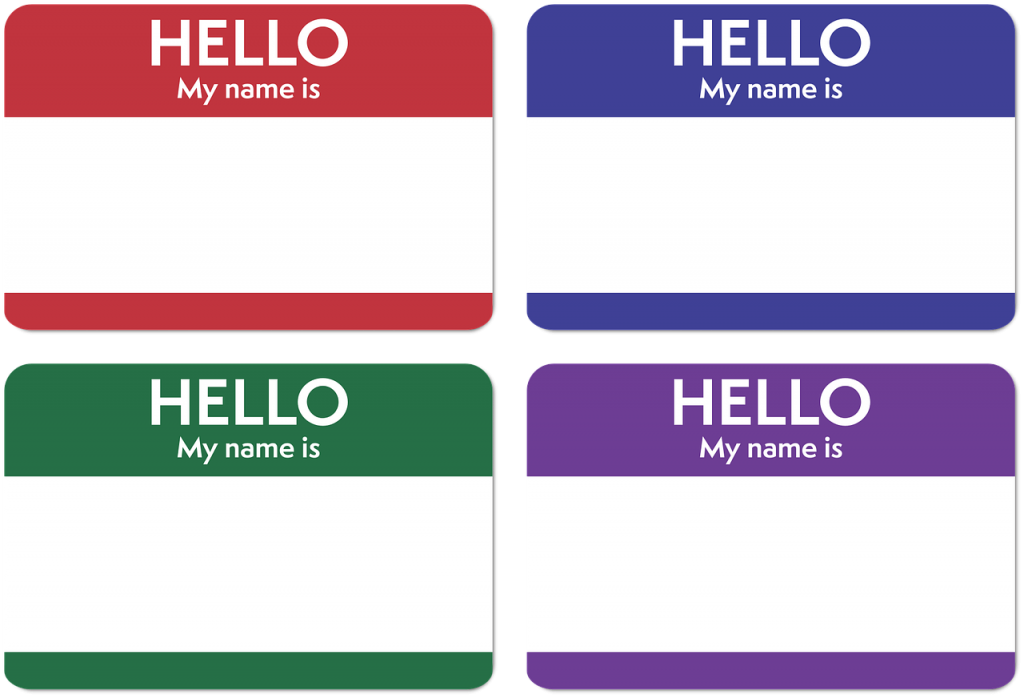
“Just call me Taz.”
This has easily become the most over-used phrase of my life, uttered by me every time I introduce myself to someone new. It’s become almost a breathless sentence; I say my name and plaster a smile on my face as I say my nickname without pausing to take a breath. I see the relief break out on a majority of faces as my name becomes chopped and easier to pronounce.
Taz. It’s simple, bite-sized and familiar.
It’s been more than a decade since I started utilizing this moniker proactively. At first, it seemed like I had been granted a new identity. My younger self did not grasp the nuances that came with rejecting my name, but at the age of 10, it didn’t really matter. All that mattered was my name would not be butchered. I would not be called Tarzan, or any of the other multitudes of nicknames I’d been teasingly given, ever again.
But lately, I have felt such a pull towards my complete name.
[Read More: ‘What’s in a Name?‘]
My full name is Tazrin, pronounced Taz-reen. It’s a beautiful name, unique and lovingly gifted to me by the joint efforts of my maternal grandfather and mother. Taken from a phrase in Surah Al-Fath (Chapter 48) in the Quran, my name originates from the line (roughly translated) “a garden where rivers flow underneath.”
My grandfather had recited the Quran when the debate over my name occurred during the final months of my mother’s pregnancy. They liked the line enough to name their first-born daughter after it. The final syllable of my name was given to make my name rhyme with my mother’s. It’s unique and well thought-out and I could not love the story of the conception of my name any more than I already do.
However, growing up with such a unique name was lost on me. I did not appreciate it and I could not get past the snickers I would hear during roll call in the mornings — to the point whenever the teacher would pause with a quizzical glance, I would raise my hand, noting my presence before their mouths had the opportunity to shape around my name.
I loathed being called Tarzan; I would often deny any sort of similarity to the “half-naked ape man.” I yearned for a name that was not so other; my brown skin, so different from that of my peers, was already a stark indicator of my otherness. Why, I bemoaned, couldn’t I have been named Sarah?
By middle school, I had firmly established myself as Taz. My reasoning was simple; Taz was a beloved Looney Tunes character and the first three letters of my name actually spelled it out. Besides, some friends growing up had called me that over the years and I had found I preferred it to the near-painful pronunciations my name induced. I felt almost entitled to the nickname.
But, I remember the first time my mother heard a friend call me Taz. She instantly became irritated and mentioned how I was ashamed of my heritage. I merely shrugged; I longed so desperately to not be other that her words, meant to be verbal barbs, did not affect me.
I am by no means the only cultural sell-out. Plenty of well-known South Asian Americans, from Nikki Haley to Mindy Kaling, anglicized their names to make them more palatable in others’ (read: white) mouths. It makes the name easier for mass consumption in America. However, I’ve noticed such a discrepancy over the past few years; I’ve seen how much effort goes into pronouncing Polish or Russian names. Why can’t the same respect be offered to those with brown skin?
[Read More: ‘7 Things you should know about the Book: Her Name is Kaur‘]
For over ten years, Taz has been my identity and I don’t think I will ever fully be rid of it (nor do I want to). Most of my South Asian friends also call me Taz. I don’t dislike the nickname itself in the slightest; what I dislike is the erasure of culture and identity that came by me choosing to only identify by it. My name reflects both my identities as a Muslim and Bengali and the older I get the more important my cultural identity becomes to me.
Shakespeare mused on the importance of a name. Names hold such power and reflect things humans hold so close: culture, history, religion, and lineage. So I’m done. I’m done dishonoring my name and assimilating to a Eurocentric culture that will never fully accept me. You are doing me a disservice if you do not learn to say my name correctly; I won’t do you a favor by making my name more palatable for you. And I will be the one to decide if you can call me Taz or not.
So, hello! My name is Tazrin. Reen like in green. It’s nice to meet you.
 Tazrin Hossain is a recent graduate of the University at Buffalo and holds a Bachelors of Arts in Political Science with a concentration in International Politics. She has an intense passion for global affairs as well as for philanthropy and policy-based issues. She is a self-proclaimed postcolonial feminist who is always looking to better the human experience for everyone indiscriminately by furthering my educational and professional endeavors.
Tazrin Hossain is a recent graduate of the University at Buffalo and holds a Bachelors of Arts in Political Science with a concentration in International Politics. She has an intense passion for global affairs as well as for philanthropy and policy-based issues. She is a self-proclaimed postcolonial feminist who is always looking to better the human experience for everyone indiscriminately by furthering my educational and professional endeavors.




